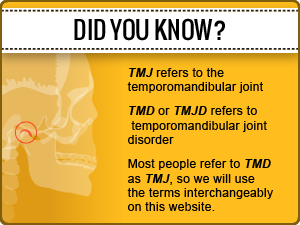THERE IS EXCELLENT EVIDENCE THAT VARIOUS BREATHING EXERCISES CAN IMPROVE SLEEP APNEA AND SNORING.
Several years ago an article in the British Medical Journal showed that learning to play the DIDGERIDOO and especially learning how to do the circular breathing required could reduce sleep apnea and snoring. I have long taught my TMJ and Headache patients breathing exercises to reduce pain and dysfunction. I have also have many patients who have learned proper breating in yoga classes.
There have been other articles about breathing exercises helping numerous problems. A new study looked at breathing exercises to reduce post operative problems in cardithoracic and upper abdominable surgery.
Incorrect breathing following childbirth is probably related to post partum depression and chronic muscle pain and headache. Normal breathing becomes impossible near the end of pregnancy. Diaphragmatic breathing becomes impossible and the expectant mother switches to thoracic breathing. Many never return to their health breathing patterns. Children with allergies and asthma, patients who snore or have small airways (patients with apnea or UARS) frequently do not do diaphragmatic or abdominal breathing.
Postoperative outcomes following preoperative inspiratory muscle training in patients undergoing cardiothoracic or upper abdominal surgery: a systematic review and meta analysis.
The article concludes that training breathing muscles “Preoperative inspiratory muscle training significantly improves respiratory (muscle) function in the early postoperative period, halving the risk of pulmonary complications.” If we can improve surgical outcomes when we are most at risk, imgagine the improvments in health we could see in the general public.
I strongly believe TMJ, Headache, Migraine and Sleep Apnea patients can benefit from a program addressing their breathing. An excellent site to learn more about breathing exercises is Breathing.com
The Pub Med abstract is below:
Postoperative outcomes following preoperative inspiratory muscle training in patients undergoing cardiothoracic or upper abdominal surgery: a systematic review and meta analysis.
Abstract
OBJECTIVE:
To evaluate whether preoperative inspiratory muscle training is effective in preventing postoperative pulmonary complications and reducing length of hospital stay in people undergoing cardiothoracic or upper abdominal surgery.
DATA SOURCES:
Medline, CINAHL, AMED, PsychINFO, Scopus, PEDro, and the Cochrane Library.
REVIEW METHODS:
A systematic review and meta analysis of randomized controlled trials (or quasi-randomized controlled trials) investigating a form of preoperative inspiratory muscle training, compared with sham or no inspiratory muscle training. Participants were adults (16 years and over) awaiting elective open cardiac, thoracic, or upper abdominal surgery. Methodological quality was assessed using the PEDro scale.
RESULTS:
Eight studies involving 295 participants were eligible for inclusion. The trained group had significantly higher maximal inspiratory pressure at the end of the preoperative training period (mean difference: 15 cm H2O, 95% confidence interval (CI): 9 to 21). This benefit was maintained through the early postoperative period, when lung function also recovered significantly more quickly in the trained group. Inspiratory muscle training also substantially reduced postoperative pulmonary complications (relative risk 0.48, 95% CI 0.26 to 0.89). Although not statistically significant, length of hospital stay also tended to favour the trained group. There were no statistically significant differences between the groups for the remaining outcomes. Participant satisfaction with inspiratory muscle training was high.
CONCLUSION:
Preoperative inspiratory muscle training significantly improves respiratory (muscle) function in the early postoperative period, halving the risk of pulmonary complications. The training does not increase length of stay, but more data are required to confirm whether it reduces length of stay.
© The Author(s) 2014.
KEYWORDS:
Systematic review; cardiothoracic surgery; preoperative care; respiratory muscle training; upper abdominal surgery
- PMID:
25160007
[PubMed – as supplied by publisher]

